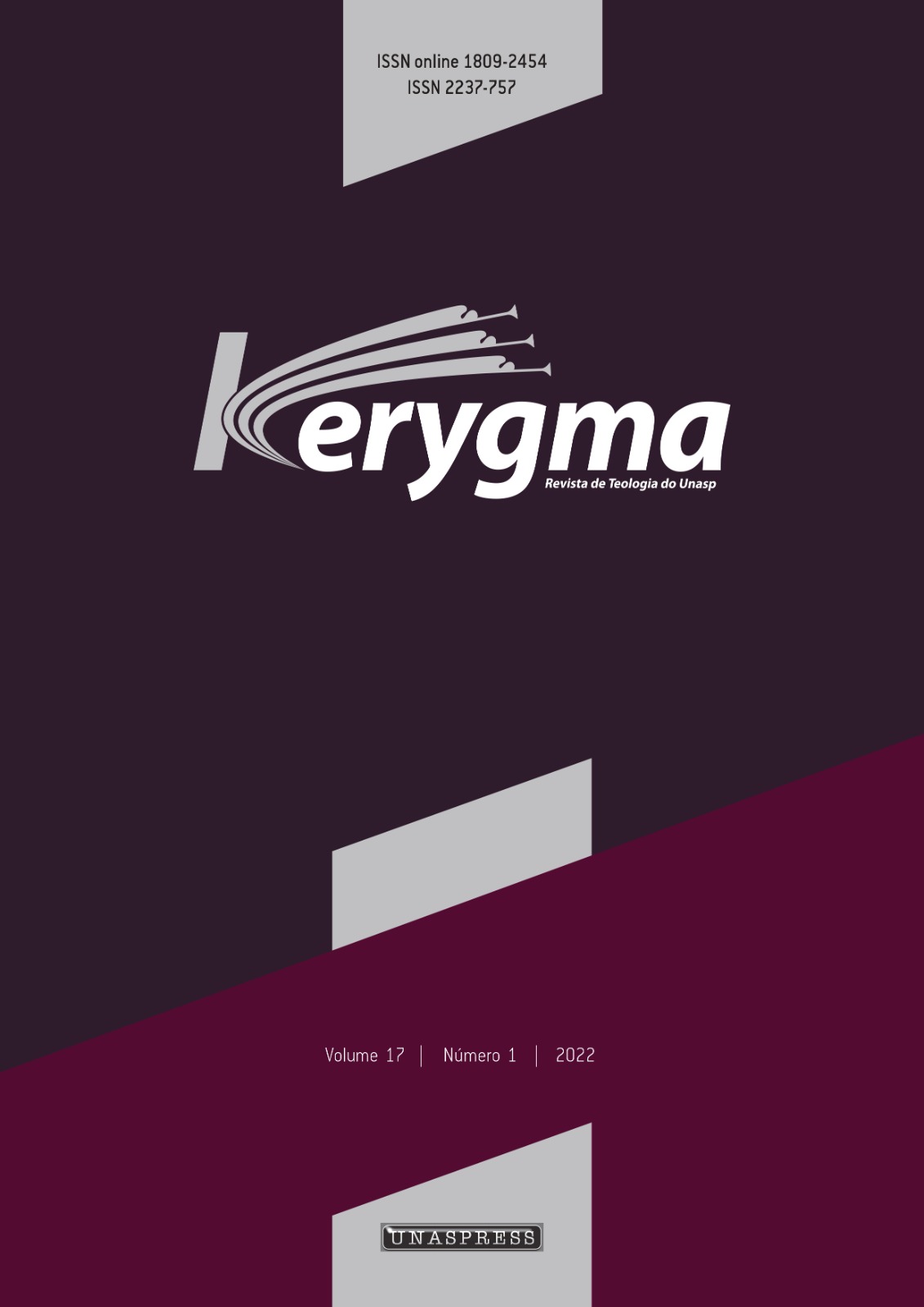Creation, Evolution, and Hermeneutics: Recent Trends in Adventism
DOI:
https://doi.org/10.19141/1809-2454.kerygma.v17.n1.pe01564Keywords:
Hermeneutics, Doctrine, Theology and Science, AdventismAbstract
Abstract: Seventh-day Adventists, since their early days, have regarded themselves as a religious movement that bases its beliefs on the Bible and advocates for historical creation in six literal days. Recently, proposals that confront this belief have emerged in the Adventist milieu causing some reflection on issues hitherto undiscussed. However, as this debate involves the ancient conflict between theology and science, it is necessary to recognize that, generally, the discussions boil down to conflicts between different interpretations and perceptions, and little attention is paid to the philosophical presuppositions of each model.
Goal: To identify the broader hermeneutical presuppositions that influence the main proposals about the debate between creation and evolution in Adventism.
Methodology: Through a bibliographic survey of the writings of Desmond Ford, Fritz Guy and Roy Graf, this work highlights, without exhausting the theme, the main proponents of three different models, called respectively in this research progressive, modern (Guy) and historical (Graf).
Results: The doctrinal differences within Adventism are conditioned by deep philosophical (ontological) foundations, and a hermeneutic (and not merely doctrinal) analysis of the debate between creation and evolution reveals the different paradigms that act as keys of interpretation for Ford, Guy and Graf, and the latter model seems to fit more with all the information provided by the scriptures and with the Adventist philosophical system.
Conclusion: Indeed, different philosophical bases and assumptions shape the worldview in such a way that it is possible to perceive different interpretations of the biblical text even within a single religious movement. It is also perceived the need, in future research on Adventist beliefs and different proposals, to always recognize the need to go beyond the doctrinal and exegetical debate, seeking to perceive the different paradigms of each interpreter and their implications in the theological formulation.
Downloads
References
AGOSTINHO. Confessions, XII, 25. In: Bernard Ramm, The Christian View of Science and Scripture (Grand Rapids: Eerdmans, 1955), 107).
BULL, Brian; GUY, Fritz. Then a Miracle Occurs. in: BULL, Brian; GUY, Fritz; TAYLOR, Ervin. Understanding Genesis: Contemporary Adventist Perspective. Riverside, CA: Adventist Today, 2009.
CANALE, Fernando. Basic Elements of Christian Theology: Scripture Replacing Tradition. Berrien Springs, MI: Andrews University Lithothec, 2005.
CANALE, Fernando. Criação, Evolução e Teologia: introdução aos métodos científicos e teológicos. Engenheiro Coelho, SP: Unaspress, 2014.
CANALE, Fernando. Toward a Criticism of Theological Reason : Time and Timelessness as Primordial Presuppositions. Tese (Doutorado em Teologia) – Berrien Springs, MI: Andrews University, 1983. Disponível em: https://digitalcommons.andrews.edu/dissertations/22. Acesso em 21 nov. 2022.
DULLES, Avery. The Craft of Theology: From Symbol to System. New York, NY: Crossroad, 1992.
FORD, Desmond. Genesis versus Darwinism: The Case for God in a Scientific World. N.p.: A&S Publications, 2014.
GRAF, Roy E. The Principle of Articulation in Adventist Theology: An Evaluation of Current Interpretations and a Proposal. Berrien Springs, MI: Adventist Theological Society, 2020.
GUY, Fritz. Change, Scripture, and Science: Good News for Adventist Thinking in the Twenty-First Century. Spectrum, vol. 37, n. 3, p. 50-55, 2009.
GUY, Fritz. God´s Time: Infinite Temporality and the Ultimate Reality of Becoming. Spectrum. vol. 29, n. 1, p. 19-28, 2001.
GUY, Fritz. Interpreting Genesis One in the Twenty-First Century. Spectrum vol. 31, n. 2, p. 5-16, 2003.
GUY, Fritz. Man and His Time: Three Contemporary Theological Interpretations, Tese (PhD em Teologia) Universidade da Escola em Divindade. Chicago, IL: 1971.
GUY, Fritz. Thinking Theologicaly? Adventist Christianity and The Interpretation of Faith. Berrien Springs, MI: Andrews University Press, 1999.
KANT, Imanoel. Critique of Pure Reason. London: J. M. Dent and Sons, 1939.
KITTS, David. The Conditions for a Nomothetic Paleontology. In: History and Evolution. Albany: State University of New York Press, 1992.
RICE, Richard. Reason and the Contours of Faith. Riverside, CA: La Sierra University Press, 1991.
TIMM, Alberto. El Santuario y los mensajes de los tres ángeles. Florida: Asociación Casa Editora Sudamericana, 2019.
WHITE, Ellen. Counsels to Writers and Editors. Nashville, TN: Southern Publishing Association, 1946.
Downloads
Published
How to Cite
Issue
Section
License
Copyright (c) 2022 Jean Zukowski, Luan Alves Cota Mól

This work is licensed under a Creative Commons Attribution 4.0 International License.
Copyright Statement
In summary, authors who publish in Kerygma must agree that:
-
Once accepted for publication, the copyright of the articles is transferred to Kerygma.
-
All third-party materials used in the text must be properly referenced.
-
Authors must hold the rights or permissions for the use of images, tables, and other graphic materials.
-
Authors guarantee that the submitted manuscript is original, of their own authorship, and has not been submitted or published elsewhere.
-
The opinions and ideas expressed in the texts are the sole responsibility of the authors and do not necessarily reflect the views of the journal.
-
The editors reserve the right to make textual revisions and adjustments in accordance with the journal’s editorial standards.
-
Authors retain copyright and grant the journal the right of first publication, with the work licensed under the Creative Commons Attribution–NonCommercial 4.0 International License.
-
Authors authorize the reproduction and adaptation of the material by Kerygma, with the authors’ participation or express authorization when required.
-
The journal may distribute, store, archive, and make the articles available through any physical or digital means, whether free of charge or paid.
-
Authors may enter into separate agreements for the non-exclusive distribution of the published version of the work, provided that the original publication in Kerygma is acknowledged.
-
Full or partial reproduction of the texts in other publications requires prior written authorization from the editor.
-
Authors are permitted and encouraged to publish and distribute their work online (e.g., in institutional repositories or personal webpages) before or during the editorial process, as this may increase the visibility and citation impact of the published work.














